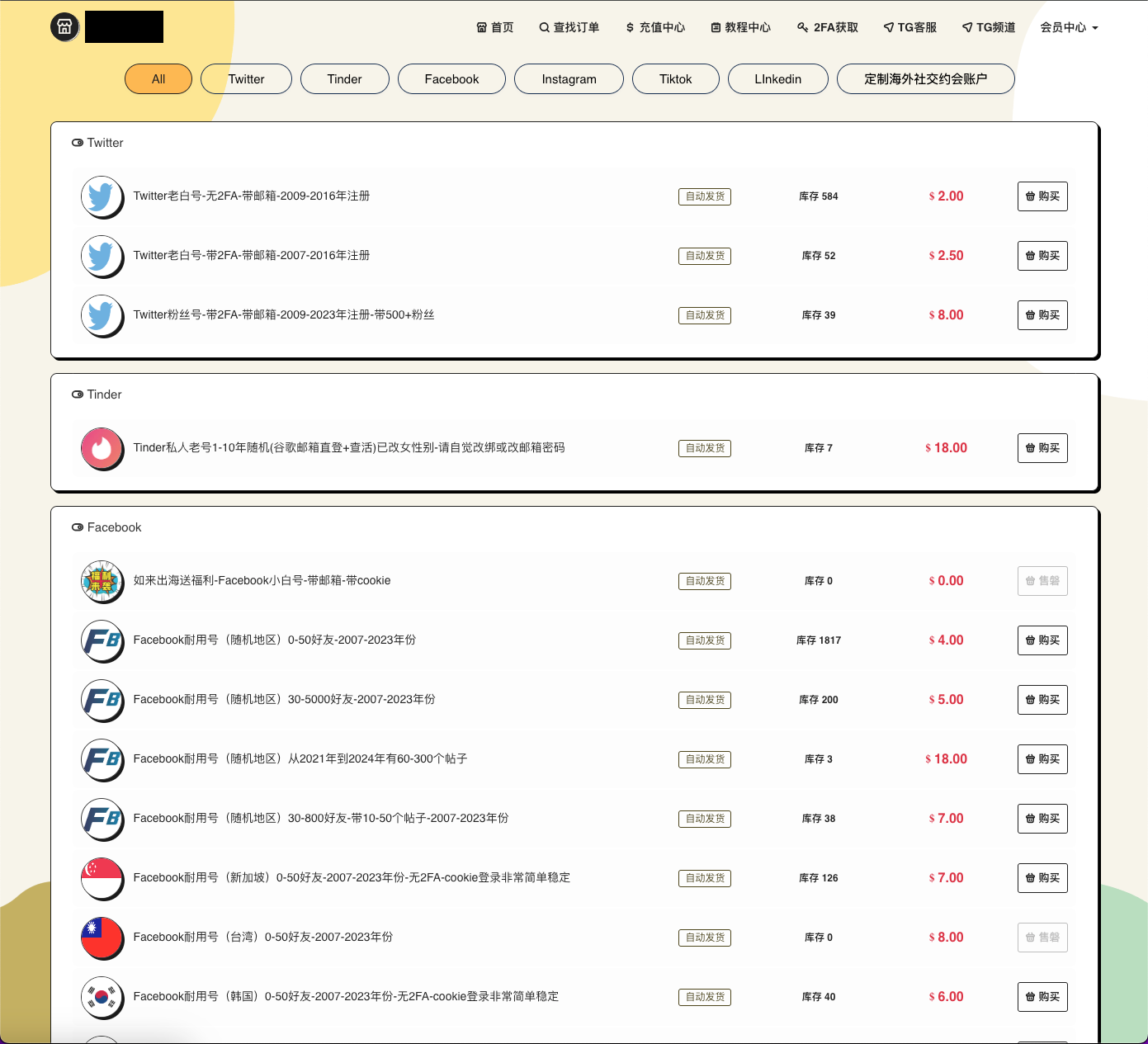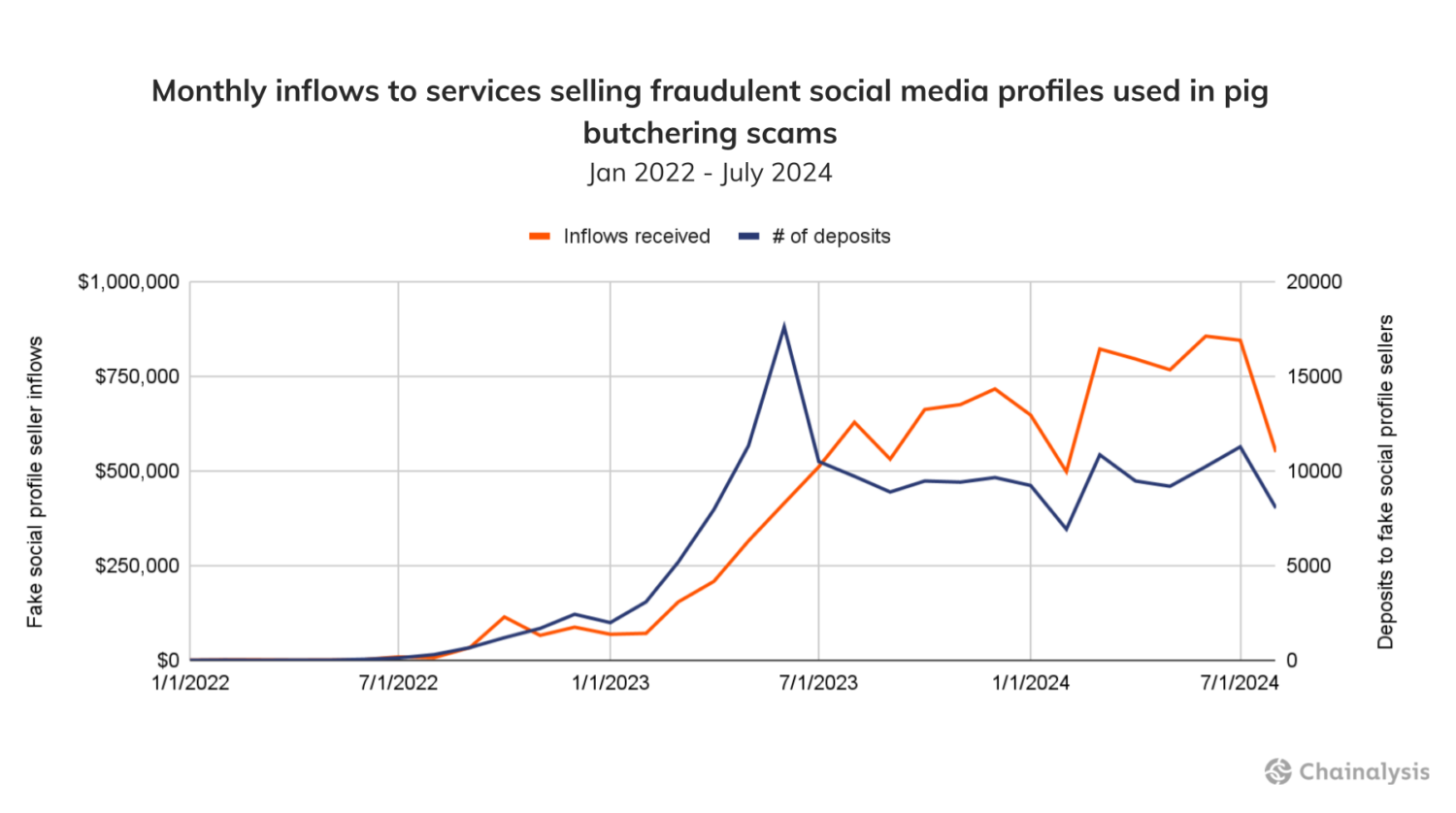Table of Contents
According to a new report by Chainalysis, 'Pig Butchering' has become the most profitable scam in crypto, while reports of Child Sexual Abuse Material CSAM vendors based in China have been on the rise since late last year.
The findings were revealed in the second part of Chainalysis' crypto crime series, which delved deeper into crypto scams. Its first part of the series revealed that crypto thieves are reverting to their roots, increasingly targeting Centralized Exchanges (CEXs) and even applying for IT positions within these exchanges.

Pig Butchering
“Pig butchering" refers to a scam that is not directly related to crypto but instead is a form of a romance scam where scammers establish a romantic relationship with the victim and encourage them to send money, usually in the form of crypto to invest in a fake project.
Scammers make use of social media profiles that are for sale online to establish their fake identities. These accounts sell for an extremely affordable rate, ranging from $5 to $20. Even if the scammers manage to get $100 from one victim it still represents a huge return for them.
Source: Chainalysis
According to Chainalysis, pig butchering has become the most lucrative type of scam so far this year. Myanmar’s most notorious pig butchering compound, KK Park, first detected on the blockchain in 2022, has already made a minimum of $101.22 million in profits so far this year.
In the same report, a marketplace related to the Cambodian conglomerate Huione Group, known as Huione Guarantee, is highlighted as a means for criminals to launder their money, processing more than $49 billion in cryptocurrency in 2021. This represents a substantial increase from previous reports.
Huione Group was also said to have historically provided legitimate services, functioning as a remittance system for international transfers and offering insurance services.

CSAM
From the end of 2023 untill now, vendors based in China have accounted for a larger share of global CSAM inflows, with its market share reaching as high as 38.8% of total inflow. “We are seeing an increase in the reporting of these types of sites,” says a spokesperson at the Internet Watch Foundation (IWF), an organization focused on combating CSAM online.
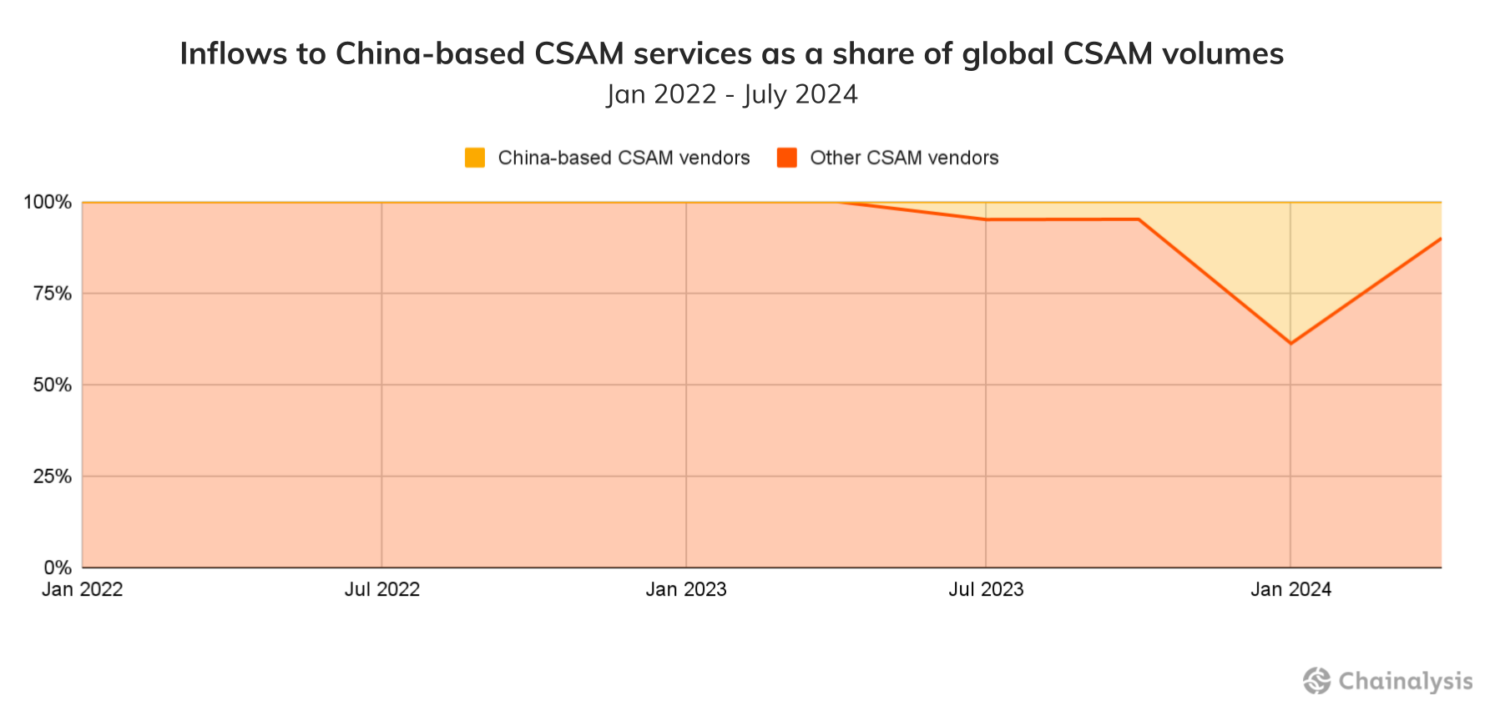
The amount transferred to vendors from buyers' wallets also signals the type of material they are buying. Buyers can get access to CSAM material for as low as $5 and given that distribution is free on the Internet, this creates a long-term vicious cycle of exploiting children. These vendors are off-ramping using instant exchanges which is another type of non-custodial exchange.
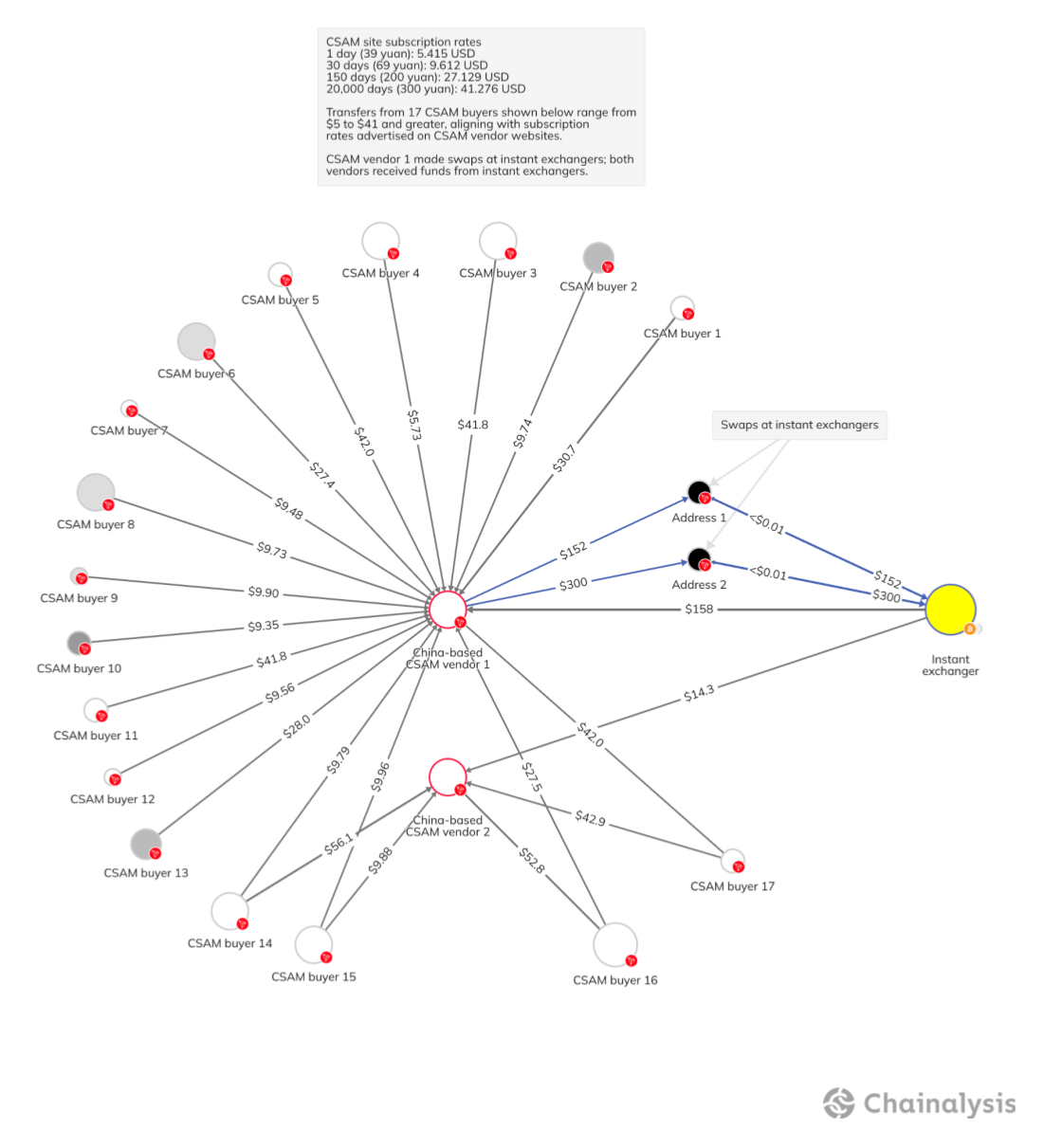
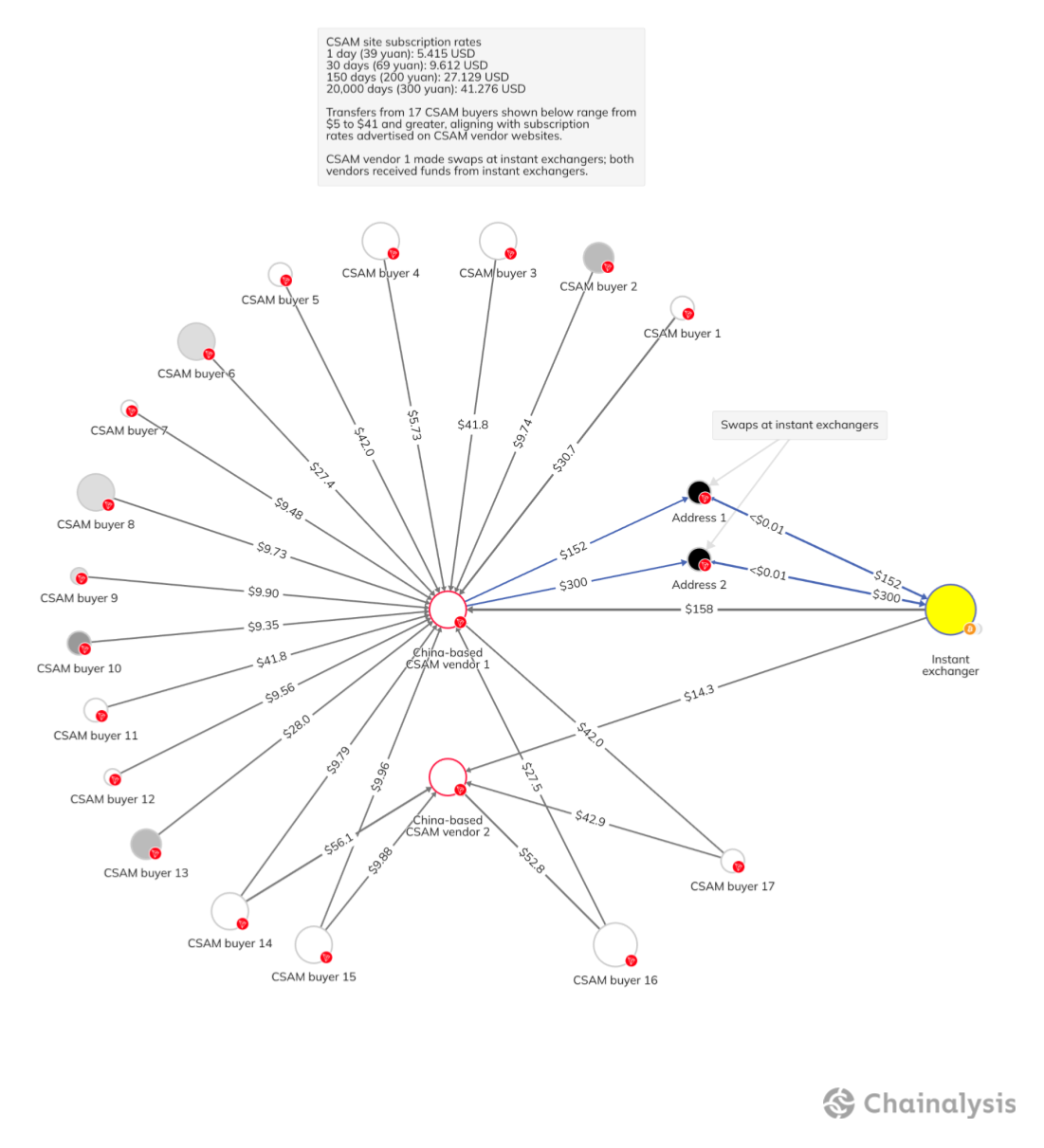
In an industry that is still nascent, there will undoubtedly be bad actors. However, the crimes in question are not inherent to cryptocurrency and it is important to separate the crime from the technology and not put the blame on a permissionless technology.




